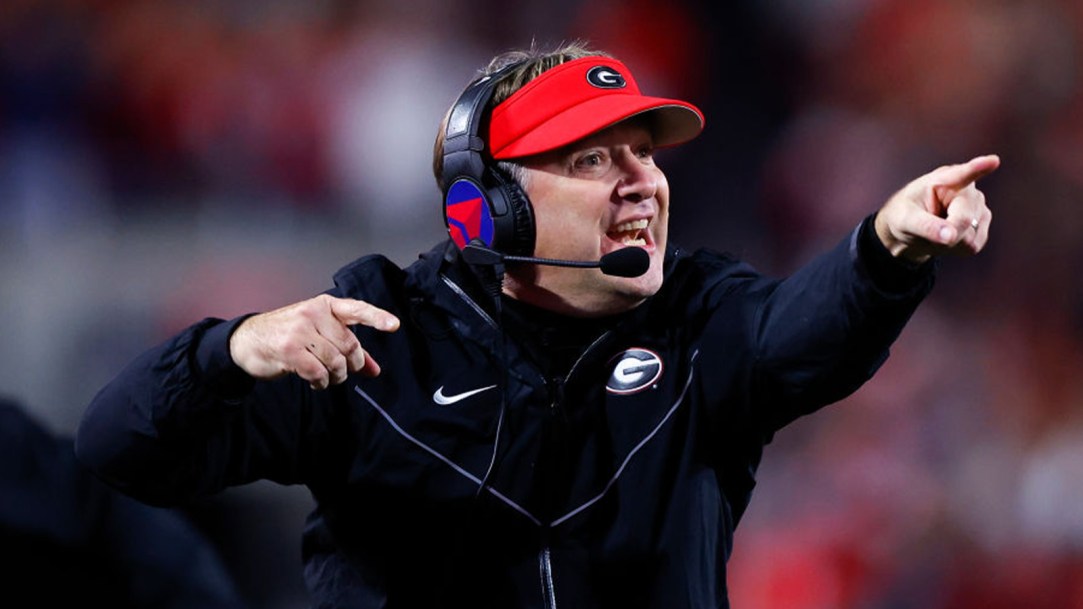
Dating back to 2021, Kirby Smart and the University of Georgia have produced 15 first-round picks in the NFL Draft. That no longer seems to matter for high school football players hoping to play for the Bulldogs on the collegiate level.
A large portion of them do not care.
Smart spoke to that notion at his program’s Pro Day on Wednesday. As many as 10 players from his program are expected to be drafted in April, including at least one first-rounder in Brock Bowers.
He wishes that he could tout those numbers to recruits and have them mean something. Instead, “a lot” of them are only focused on one thing— money. More specifically, NIL money.
They want to know how much they are getting paid. Everything else goes in one ear and out the other.
[NFL Draft success] is a great sell to the kids that will listen to it. There is a lot of them that want to ask about NIL. They don’t want to ask about what your NFL players have done. I think it’s much more important how you develop players than how much NIL you can give them.
— Kirby Smart
This, of course, is not an earth-shattering revelation. Name, Image and Likeness has changed the entire landscape of college sports. What used to be a professional sport that was hidden under the guise of amateurism is now out in the open.
Nick Saban chose to retire because he felt like the athletes only cared about money. While there is plenty to be said about a coach who complains about the players wanting to be paid while making millions of dollars per year, Smart’s perspective is the larger takeaway.
He produced more than 50 total draft picks during his first seven years as the head coach at Georgia. It took Saban nine years to reach that mark at Alabama and 10 years for Dabo Swinney at Clemson.
That should be a major selling point for Kirby Smart and his program: “We will get you to the NFL.”
Instead, the recruits are more focused on the immediate future and short-term finances than long-term success. Those that believe they are going to the league one day anyway feel entitled to superstar treatment. Those who do not believe they have a shot at playing on the pro level want to get their money while they can.